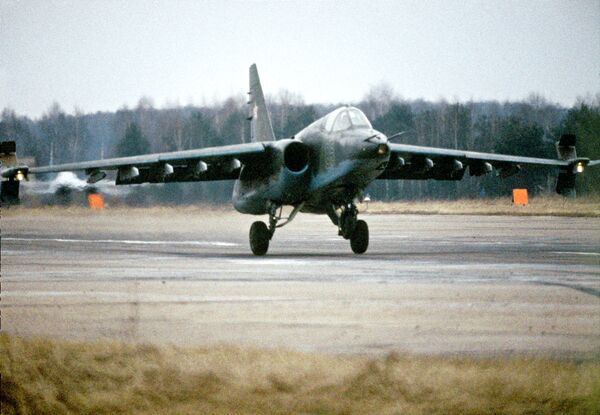WASHINGTON, July 1 (RIA Novosti) - The Russian delivery of fighter jets to Iraq will fulfill a need that has gone unmet by the United States and other countries, Iraqi ambassador to the US, Lukman Faily, said Tuesday.
"As far as the purchases from Russia [of fighter jets], we don't have choices. The situation on the ground is pushing us and cornering us to choose whoever is available to support us on the ground," said Faily in response to a question from RIA Novosti.
Addressing the Carnegie Endowment for Peace, Ambassador Faily continued that while he respects the political process in the US regarding international weapons sales, it has created a delay that has jeopardized Iraqi security.
"We never wanted to be part of this internal US discourse as to the provision of weapons and strategic capabilities to Iraq. However, unfortunately that was the result. And what we see now is the aftermath of the slow responses to the situation in Iraq," Faily said.
Late June, the first batch of Russian fighter jets arrived in Iraq, according to the Iraqi Defense Ministry. Some American media were critical and accusatory of Russia's support for the standing Iraqi government in response to the escalating crisis.
However, as the Islamic State of Iraq and Greater Syria (ISIS) terrorist group continues to hold territory in Iraq and critical border crossings to Syria and Jordan, Ambassador Faily told the Carnegie Endowment audience, "We have a need, there is a void."
"The situation on the ground might push" Iraq to accept military support from countries with whom Iraq has not generally shared strategic interests, including Iran, according to Faily.
"It was difficult for us to decline offers from any other countries who share our perception of danger. Time is not on our side," said Faily, adding that "further delay benefits only the terrorists."
Explaining the decision to purchase Russian fighter jets, Faily told RIA Novosti that Iraq had been requesting Apache helicopters from the US for the past three years, but the deal was held up by Congress and the White House. The ambassador said that last August, when ISIS was a less severe threat, Foreign Minister Hoshyar Zabari was in Washington DC requesting military support.
"Unfortunately that was not adhered to, or not received positively, and so the situation came up in the last few weeks," Faily said.
The crisis could have potentially been mitigated if it had been dealt with earlier, according to Faily. "At that time ISIS was in the desert. They could have been an easy target, there was no collateral damage." According to the ambassador, that opportunity was lost, "and we will suffer most from it."


